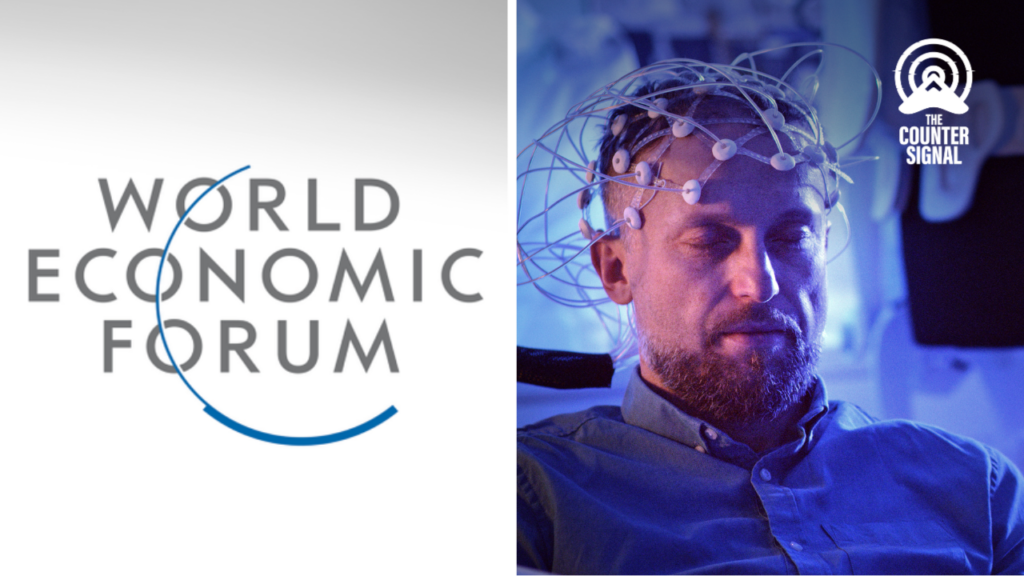At the 2023 World Economic Forum in Davos, Switzerland, a Duke University professor gave an Orwellian presentation advocating for “neural transparency” – or the ability for corporations to spy on the brain waves of their workers.

Professor Nita Farahany glowingly cheered on how new devices that can read and record brain activity are already being used in workplaces around the world, supposedly to enhance safety and productivity.
“What do you think? Is it a future you’re ready for? You may be surprised to learn that it is a future that has already arrived,” said Farhany.
Farahany explained that various wearable sensors can detect how tired, focused, or distracted a worker is, and transmit this data to their employers. She claimed that thousands of companies have already adopted this technology already.
“Your mind starts to wander to your new colleague on your team, whom you know you shouldn’t be daydreaming about given the company policy on office romance but you can’t help fantasizing just a little,” said Farahany.
“But then you start to worry that your boss will notice your amorous feelings when she checks your brain activity and shifts your attention back to the present. You breathe a sigh of relief when the email she sends you congratulates you on your brain metrics in the past quarter which earns you a performance bonus.”
Not insane or Orwellian in any way whatsoever
She also envisioned a future where every office worker would wear a device that would constantly monitor their brainwaves, creating a permanent record of their thoughts, attention, and energy levels.
Even though Farahany admitted that this technology could have negative consequences she still thinks its a good idea:
“Done poorly, it could become the most oppressive technology we’ve ever introduced on a wide scale.”
Citing statistics that nine out of 10 employees waste time at work every day, Farahany claimed that employers had a good reason to keep an eye on everyone.
Farahany also naively said that neurotechnology in the workplace could be used ethically and responsibly, as long as we “make a choice to use it well”












